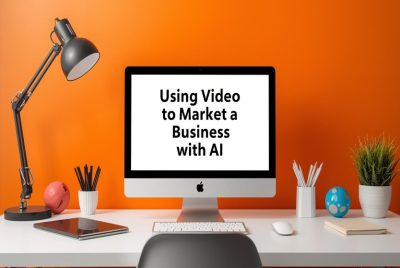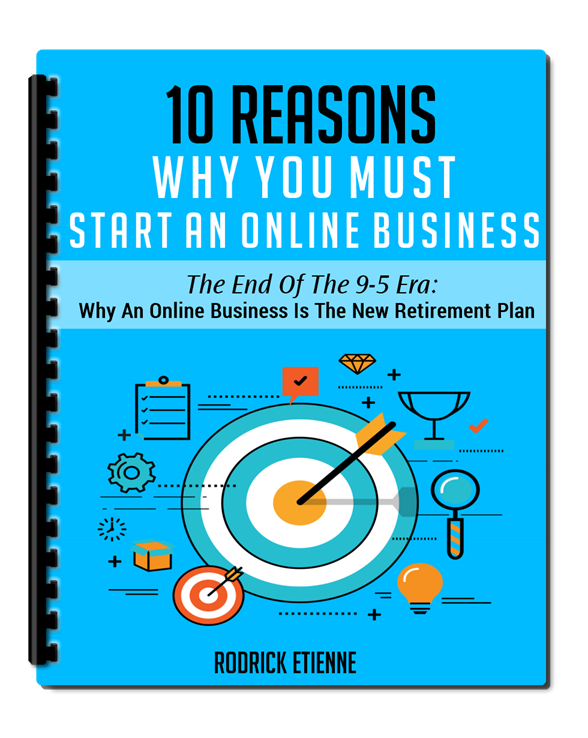Every entrepreneur and business owner is racing against time—time to capture attention, convert leads, and stay…
10 Signs Your Business Should Start Using AI In Marketing

Running a business in today’s fast-paced and highly competitive market is no small feat. With consumers’ preferences constantly shifting and marketing trends evolving at lightning speed, staying ahead can feel overwhelming for even the most seasoned business owners.
You’ve likely wondered how to make your marketing efforts more efficient and impactful without exhausting resources or getting lost in an endless cycle of trial and error.
This is where artificial intelligence (AI) can become a game-changer. AI is no longer just a buzzword reserved for tech giants—it’s an accessible tool that can streamline processes, provide deeper customer insights, and take marketing campaigns to new heights.
But how do you know if it’s the right time for your business to adopt AI in your marketing strategy?
This article will guide you through 10 unmistakable signs that your business could benefit from integrating AI into your marketing efforts.
If you want to stay competitive, cut costs, and boost ROI, this is a must-read for you.
1)) Declining Customer Engagement
One of the clearest indicators that your business might need a new approach to marketing is declining customer engagement.
When customers are no longer interacting with your campaigns, whether it’s through clicks, shares, or direct responses, it signals that your current strategies may no longer resonate with your target audience.
AI can help by analyzing extensive datasets to uncover valuable insights about customer preferences and behaviors.
With this information, businesses can personalize content and deliver it through the channels customers prefer, creating a more tailored and engaging experience.
By leveraging these advanced technologies, you not only capture attention but also rebuild meaningful connections with your audience, positioning your brand as both relevant and reliable.
2)) Inefficient Data Analysis
Inefficient data analysis often leads to missed opportunities and wasted resources, making it a clear indicator that a business should consider utilizing AI for marketing efforts.
AI can handle vast amounts of data quickly and accurately, identifying patterns and insights that might go unnoticed through manual analysis.
This technology enables businesses to better understand customer preferences, predict trends, and make data-driven decisions tailored to their audience’s needs.
By automating complex analytical processes, AI not only saves time but also helps improve campaign precision, ensuring that marketing efforts are both effective and impactful in a competitive landscape.
3)) High Marketing Costs
High marketing costs often indicate inefficiencies or missed opportunities in current strategies, making it an ideal scenario to utilize AI in marketing.
By leveraging the power of AI, businesses can streamline their efforts through data-driven insights, enabling them to identify target audiences with greater precision and create campaigns tailored to specific demographics.
AI tools can also help predict consumer behavior and trends, reducing the need for spending on broad, untargeted advertising efforts.
Through automation of repetitive tasks and real-time performance analysis, businesses can redistribute their budget toward impactful strategies rather than wasteful expenditures.
This not only curbs excessive marketing costs but also enhances the overall effectiveness of campaigns, solidifying a company’s competitive edge in the market.
4)) Low Personalization In Campaigns
Personalization has become a key factor in the success of modern marketing strategies. When businesses fail to deliver tailored experiences for their audience, it often indicates a lack of advanced tools or methods to analyze customer preferences and behaviors effectively.
AI-powered solutions can bridge this gap by identifying patterns, preferences, and buying behaviors that would otherwise go unnoticed with traditional methods.
Through AI, companies can craft highly relevant messages and content for specific segments or even individual customers, significantly improving engagement rates.
This targeted approach not only strengthens customer satisfaction but also inspires brand loyalty, as consumers feel more connected to brands that understand and cater to their unique needs.
By leveraging the power of AI in marketing, businesses can confidently step into a new era of personalization that drives impactful results.
5)) Difficulty Segmenting Audience
When businesses struggle to effectively segment their audience, it often signals a need for more advanced tools to understand customer behavior and preferences.
AI provides a powerful solution by analyzing vast amounts of data to uncover meaningful patterns and insights.
This technology allows companies to identify distinct customer groups based on behaviors, demographics, and interests with unparalleled precision.
By doing so, businesses can craft targeted strategies that resonate with specific segments, ensuring their messages are both relevant and impactful.
Using AI not only simplifies the process of audience segmentation but also enhances its accuracy, enabling businesses to connect with their audience on a much deeper level and ultimately deliver more successful campaigns.
6)) Slow Response Times To Leads
Slow response times to leads can result in missed opportunities and diminished customer trust, which is why leveraging AI in marketing is a crucial step for businesses facing this challenge.
AI tools can operate around the clock, ensuring potential customers receive timely responses regardless of when they make inquiries.
By automating processes like lead follow-ups, personalized messaging, and question handling, businesses can significantly enhance their efficiency and provide a seamless customer experience.
This not only keeps prospects engaged but also demonstrates a commitment to meeting their needs promptly, which reflects positively on the company’s reliability and professionalism.
With AI bridging the gap caused by delays, businesses can nurture leads more effectively and improve conversion rates over time.
7)) Poor Predictive Insights
Businesses struggling to accurately forecast market trends or customer behavior often face significant challenges in creating effective marketing strategies.
This lack of clarity can lead to wasted resources, missed opportunities, and campaigns that fail to resonate with the target audience.
By leveraging the capabilities of artificial intelligence, businesses can analyze vast amounts of data to uncover patterns and generate more accurate predictions.
This empowers organizations to better understand consumer preferences, respond to market changes more swiftly, and craft highly personalized experiences that drive engagement.
Such insights are invaluable for staying competitive in a fast-paced, data-driven world where precision in decision-making can make all the difference.
8)) Struggling With Content Creation
Content creation can be one of the most challenging aspects of modern marketing, as businesses often face the daunting task of consistently producing fresh, engaging, and high-quality material.
AI tools have emerged as a powerful solution to this problem, enabling businesses to generate content faster and more efficiently than traditional methods.
These intelligent systems analyze trends, understand audience preferences, and craft messages that resonate deeply with specific demographics.
By leveraging AI, companies can save valuable time, reduce creative burnout, and maintain a consistent brand voice across multiple platforms.
For businesses struggling to keep up with content demands, using AI is not just a convenience—it’s a critical step in staying relevant in competitive markets.
9)) Low ROI On Marketing Efforts
When a business notices that its marketing efforts are not yielding a satisfactory return, it is often a clear indicator that new strategies and tools are needed.
AI-driven marketing solutions can revolutionize how businesses approach their audience, offering precise targeting, data analysis, and personalization like never before.
By leveraging AI, companies can better understand customer behaviors, preferences, and trends, ensuring every campaign is strategically crafted for maximum impact.
This not only reduces wasted resources on ineffective strategies but also facilitates smarter decision-making through actionable insights.
For businesses looking to boost efficiency and see tangible results from their marketing investments, AI provides a path forward that is both innovative and results-focused.
10)) Competitors Using AI Marketing Tools
When competitors begin leveraging AI marketing tools, it becomes crucial for businesses to act decisively to remain competitive.
These advanced technologies enable competitors to craft highly targeted campaigns, analyze customer behavior in real time, and predict trends with unparalleled accuracy.
By using AI, they are likely gaining an edge in connecting with audiences more effectively and personalizing their strategies to boost engagement.
This advantage can lead to increased market share, stronger customer loyalty, and greater revenue potential for those ahead of the curve.
For any business still relying on traditional methods, ignoring this shift risks falling behind as competitors harness the power of AI to thrive in an increasingly digital and data-driven marketplace.
Acting quickly to implement advanced strategies is the key to closing the gap and sustaining growth in this evolving landscape.
Conclusion
For business owners, the message is clear—embracing advancements like AI is no longer optional but essential for staying competitive in today’s market.
The digital age demands adaptability and foresight, and those who take proactive steps to integrate innovative technologies will not only survive but thrive.
By leveraging AI tools, businesses can streamline operations, enhance customer experiences, and make data-driven decisions that foster growth and efficiency.
The key is to act decisively, recognizing the opportunities available and aligning them with your business goals.
The future belongs to those who are willing to innovate, and now is the time to invest in the strategies and tools that will secure long-term success.
Don’t wait until it’s too late—position your business today for a stronger, more competitive tomorrow.





